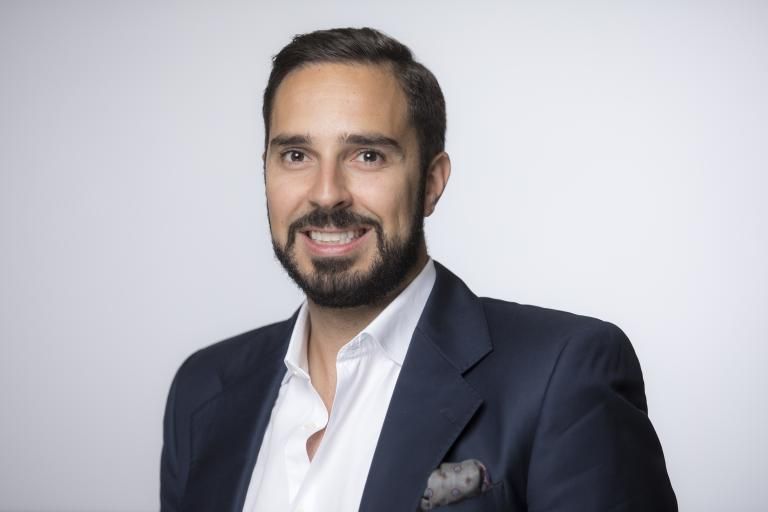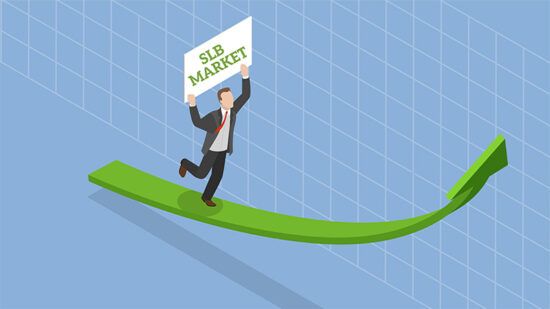Human rights, supply chains and the next generation of business leaders were the topics of questions posed to Professor Paolo Taticchi in our latest live Twitter Q&A.
Paolo Taticchi, professor (education) in strategy and sustainability, as well as deputy director (MBA and International) at the UCL School of Management, gave answers on 14 April live on Twitter to ESG Clarity readers who posed questions surrounding his specialism in corporate sustainability.
We have collated all the questions and answers below for readers to view in one place.
Follow ESG Clarity on Twitter – @ESGClarity
The live Q&A is an initiative from ESG Clarity to boost interaction between the in-house team and our readers, as well as connect them with ESG investing experts such as the CEO of the PRI Fiona Reynolds, Oxford University professor Linda Scott and Professor Gandhi.
We are asking readers to send further suggestions to esgeditors@lastwordmedia.com on who they would like to interview in the next Live Q&A Twitter sessions. These should be experts in responsible investing space, for example a senior person at a government or trade body/organisation, academics, charity representative, or somebody in a senior position at a think tank, campaign organisations, regulatory committees, network etc.
There are some single use items that we cannot do without – PPE a prime example – do strict ESG screens not risk robbing investments from these manufacturers?
That could happen, but in my opinion the most sustainable organisations of every industrial sector will be rewarded for their efforts. Best-in-class screening should be used in these circumstances, not negative screening.
What effect will SFDR have on sustainable investing – will it be a game changer?
‘Game changer’ is a big word. but I think it will contribute massively to push transparency and the growth of sustainable finance. It’s definitely a positive step in the right direction.
What is the biggest lever of change – eg regulation, consumers?
It varies from industry to industry (for example, in fashion I would argue it is customers; in the automotive sector, it would be regulation). Today, companies have a plurality of stakeholders pushing for sustainability, with some of them being more vocal and influential than others.
See also: – Podcast: UCL’s Paolo Taticchi on corporate sustainability and the next generation of business leaders
It can be difficult to get industries to agree on standardisation & ensure supply chain transparency. What do you think could be the next steps?
Supply chain transparency is a hot topic today. Many companies limit their focus to their tier one and two suppliers, but often real issues are further in the supply chain. I think we need to come up with better frameworks to disclose the sustainability performance of supply chains.
Standardisation is key for creating a common language and benchmarks, and therefore key for transparency. For example, look at the great impact of frameworks like the Global Reporting Initiative (GRI) that were not perfect, but helped tremendously to spread sustainability reporting.
Should companies be tying sustainability goals to executive compensation?
Absolutely yes! This is key to push sustainability in industry. Many companies are today looking into this, it’s not easy, but it’s the time to do it.
Which sectors are furthest behind in creating sustainable businesses? Which are leaders?
I see all sectors engaged. It’s more about individual firms. In every sector today you can (often easily!) identify a number of sustainability leaders, practitioners and laggards. In the next 10 years, I think sustainability leaders will be recognised more and more for their efforts. I carried out this research which lists criteria to identify sustainability leaders: Corporate sustainability approaches and governance mechanisms in sustainable supply chain management.
How do you envisage the attitude of businesses to corporate sustainability will change? It seems to be a slow process…
It’s a slow process because many of today’s executives in large organisations have not been educated on this important topic (business schools are responsible too!). As a consequence of that, they struggle to see the business case for integrating sustainability.
Recent business graduates value sustainability, and are pushing change in organisations. When they reach executive positions, we will see organisations changing much faster.
Of course, there are many organisations with visionary leaders who are transforming their businesses and pushing positive change in entire industries. I have the fortune to work/advise some of them such as Walpole in the UK, Mercato Metropolitano in Italy and pharmaceutical company Consilient Health.
The ESG sector has attracted a lot of younger and female managers – do you think this could be a potential barrier to some more ‘traditional’ investors parting with their cash?
I recognise that as a fantastic change in the context of a sector that tends to be male dominated. I don’t think this creates any barriers (and genuinely hope so).
Should corporate sustainability be primarily focused on a company’s impact on the environment and climate change, or are other factors (such as supply chain management, workers’ rights, diversity, remuneration) equally important?
The E, S and G are equally important and sustainability strategies should reflect that. For a new/modern definition of corporate sustainability, check out my book: Corporate Sustainability in Practice – A Guide for Strategy Development and Implementation.
How can progress in sustainability be tracked and measured? Should there be a blueprint that can be applied and tailored to specific sectors/businesses or should specific goals be set industry-wide for everyone to achieve according to size/capability?
Sustainability is company-, industry- and country-specific. Companies need to measure their positive and negative impacts, identify baselines, and monitor progress constantly, and disclose in a transparent way.
Is there enough knowledge about ESG for companies to make strategic decisions which can impact it for decades?
I love this question. I think the answer is yes! Knowledge is available, but very often not in-house. That is why sustainability consulting is growing, and partnerships are key for sustainability.
ESG dominates the investment agenda. Do you feel there is sufficient focus on human rights? Is there merit in asset managers adopting a Clean Trade approach, in the same way they look to align their investments with the UN SDGs?
The challenge is that certain sustainability issues are easier to analyse and measure than others. This partially explains the focus of several asset managers/investors. At present, I see a lot of research focused on social impact, and more tolls will become available in the years coming.
Do you think ESG will lead to better investment performance? How quickly do you think this could show through?
I think it is already happening and many recent studies demonstrate a positive link between ESG performance and financial performance.
Asset managers took a very public stance against Deliveroo’s IPO over its employment practices. How important is the investment industry in setting the corporate sustainability agenda? Do you expect to see more attention paid to workers’ rights?
I think the investment industry plays a huge role, and things like the PRI and Larry Fink’s letters have significantly pushed the sustainability agenda. Employment practices will increasingly be the subject of scrutiny.
You are teaching the next generation of corporate leaders at the UCL School of Management, what will be their legacy in terms of sustainability?
We train them to build and lead better organisations and explain to them that profit and sustainability can co-exist. I like to think all our graduates are sustainability change makers.








